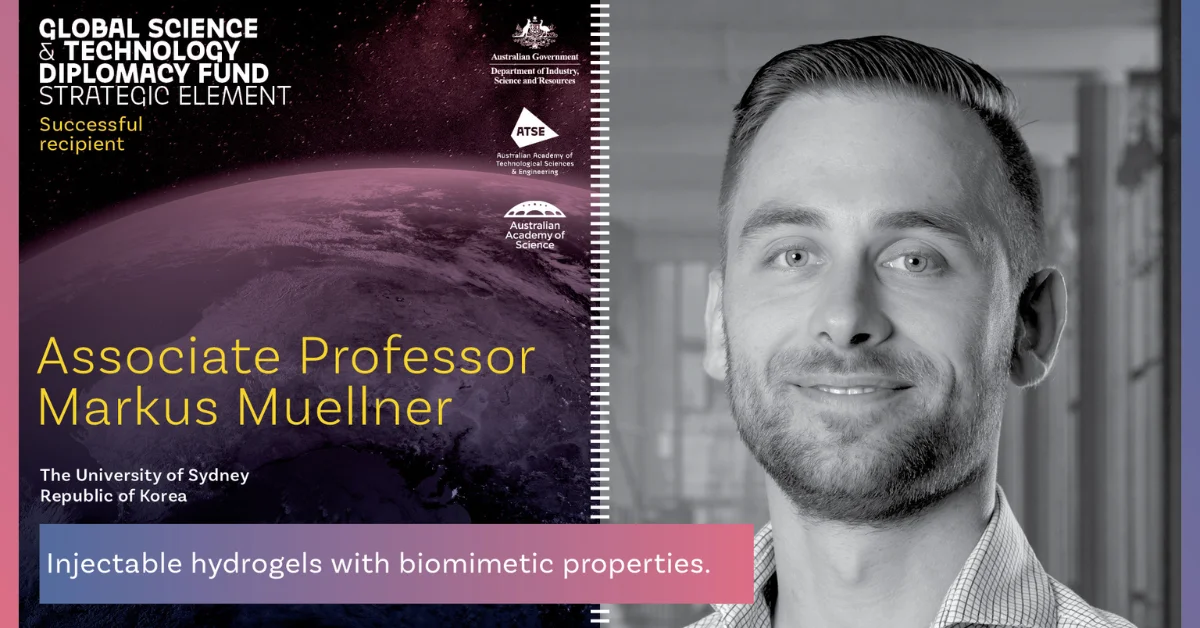Associate Professor Markus Müllner from the University of Sydney, based in Camperdown, is among nine Australian innovators awarded a share of $6 million in funding to foster international science and technology partnerships.
This initiative, spearheaded by the Global Science and Technology Diplomacy Fund—Strategic Element (GSTDF-SE), aims to bolster collaborations between Australian researchers and their counterparts in countries such as Japan, Korea, Thailand, Singapore, and New Zealand.
Professor Müllner’s project, focusing on developing a revolutionary injectable hydrogel, has secured funding to partner with researchers and industry leaders in the Republic of Korea. This innovative hydrogel holds immense potential for various medical applications, including reconstructive surgery, tissue engineering, and drug delivery.

He is heading the Polymer Nanostructures Group in the Key Centre for Polymers and Colloids. He is renowned for his expertise in polymer chemistry, particularly in synthesising and applying molecular polymer bottlebrushes. His research group explores various polymer-related topics, from self-assembly and nanomedicine to photocatalysis and polymer-templated nanomaterials.
Other grant recipients are tackling diverse challenges, from advancing next-generation solar cell manufacturing to creating novel rare-earth magnets. For instance, Professor Rose Amal from the University of New South Wales will lead a collaborative effort with teams in Japan, Indonesia, Malaysia, and Singapore to establish a research and development hub dedicated to commercialising solar hydrogen production technology.
This funding, announced by the Hon Ed Husic MP, Minister for Industry and Science, and delivered by Australia’s two Learned Academies for Science and Technology, represents a crucial step in strengthening Australia’s position as a global leader in innovation.
The Australian Academy of Technological Sciences and Engineering emphasised the significant demand for such grants, highlighting the eagerness of Australian researchers to engage in international collaborations and address global challenges.
The Australian Academy of Science underscored the importance of science and technology exchange in Australia’s diplomatic efforts, particularly in the current geopolitical climate. The GSTDF-SE strengthens links between Australian researchers and their regional partners.
This initiative, aligned with Australia’s science priorities, will run for four years and support international collaboration with strategically important partner nations. The goal is to enhance Australia’s capability and profile in scientific and technological research and its applications while simultaneously promoting the commercialisation of cutting-edge products and services.
Published Date 23-December-2024





